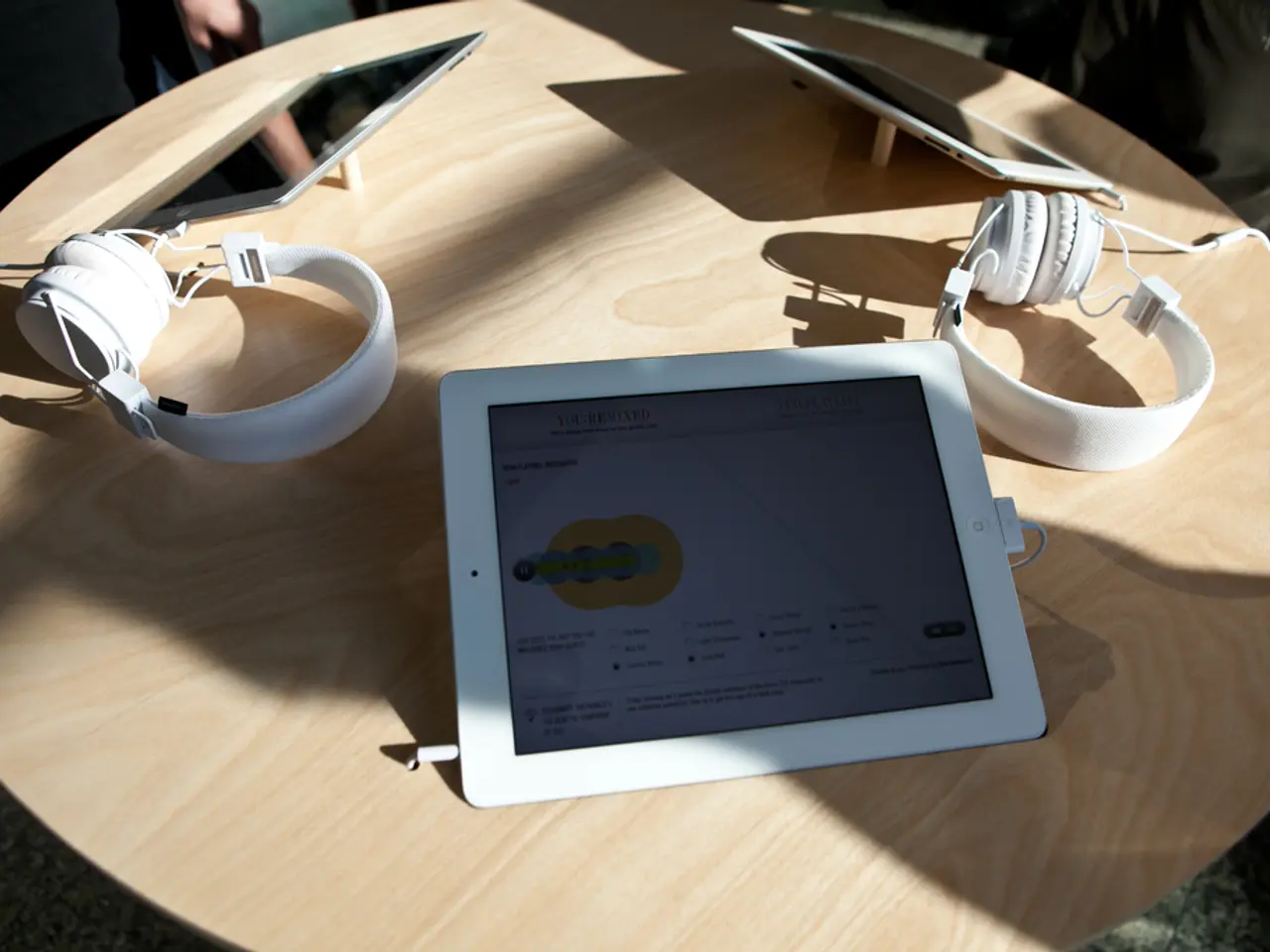Wearable ECG Monitors: Analyzing the Next Phase in Heart Health Technology
In the realm of modern medicine, the integration of artificial intelligence (AI) and wearable ECG monitoring devices is revolutionizing the way we approach cardiovascular health. These smart devices, including smartwatches and portable ECGs, are becoming increasingly popular for real-time monitoring of heart conditions, such as atrial fibrillation (AF), with high accuracy.
One of the most significant advancements is the role of AI in improving the detection of AF and reducing inconclusive diagnoses when using single-lead ECG data from these devices. Furthermore, AI algorithms have shown potential in differentiating between hypertensive and normotensive individuals based on ECG data, achieving significant accuracy rates.
The use of these devices extends beyond mere monitoring, as they are paving the way for personalized medicine. Wearable biosensing networks, assisted by AI, are moving towards providing point-of-care diagnostics that can efficiently process biosensing data to detect abnormalities and manage chronic diseases. This approach offers cost-effective solutions that can be adapted across various healthcare settings.
Long-term monitoring is another area where these devices are making a substantial impact. Devices like the Apple Watch are being utilized in long-term studies to detect AF early and prevent related complications, such as cognitive decline. The integration of AI with wearable technology is crucial for broader clinical applications, offering scalable and accessible solutions for cardiovascular health management.
Looking ahead, future trends include further integration of machine learning (ML) and AI to enhance the accuracy and reliability of wearable sensors. This involves developing non-enzymatic sweat sensors and optimizing AI algorithms for better disease detection.
The acceptance of telehealth services is expected to increase the adoption of AI-enabled wearable devices. Wearable trends are projected to drive the surge in usage, especially in the ECG equipment market, with significant investments in monitoring technologies.
The ECG equipment market is anticipated to grow, with wearable technologies playing a key role. Innovations in portability, cloud connectivity, and AI-driven arrhythmia detection are expected to drive market expansion. The development of more advanced and mobile cardiac telemetry systems that provide real-time data will continue to enhance patient care.
However, addressing technical challenges such as false alerts and device malfunctions, as well as ethical concerns like algorithmic bias, will be crucial for successful integration of AI-powered wearables into healthcare. AI is considered the key element in transforming wearable ECG monitoring devices into integrated diagnostic systems, improving diagnostic accuracy and reducing medical error rates.
In conclusion, the integration of AI and wearable ECG monitoring devices is reshaping healthcare, offering continuous monitoring of vital heart indicators, enabling doctors to detect any abnormal changes immediately, and fostering an interactive environment between patients and doctors. The future of smart healthcare lies in the hands of these innovative devices and the medical professionals who will shape their development.
- The integration of AI in advanced wearable ECG devices is pioneering a new era in cardiovascular health, notably improving the detection of atrial fibrillation with a reduced rate of inconclusive diagnoses.
- AI algorithms demonstrated remarkable potential in distinguishing between hypertensive and normotensive individuals based on ECG data, showcasing a high accuracy rate.
- Beyond monitoring, AI-assisted wearable biosensing networks are geared towards providing point-of-care diagnostics for detecting abnormalities and managing chronic diseases cost-effectively.
- Long-term studies utilizing devices such as the Apple Watch are critical for early AF detection and subsequent prevention of related complications like cognitive decline.
- Innovations like machine learning and AI will enhance the precision and reliability of wearable sensors, focusing on developing non-enzymatic sweat sensors and optimizing AI algorithms for superior disease detection.
- The embrace of telehealth services and anticipated growth in wearable technology trends will stimulate increased adoption of AI-empowered devices, particularly in the ECG equipment market.
- The continuous development of mobile cardiac telemetry systems offering real-time data, addressing technical challenges such as false alerts, device malfunctions, and algorithmic bias, remains essential for successful integration of AI-powered wearables into healthcare.




